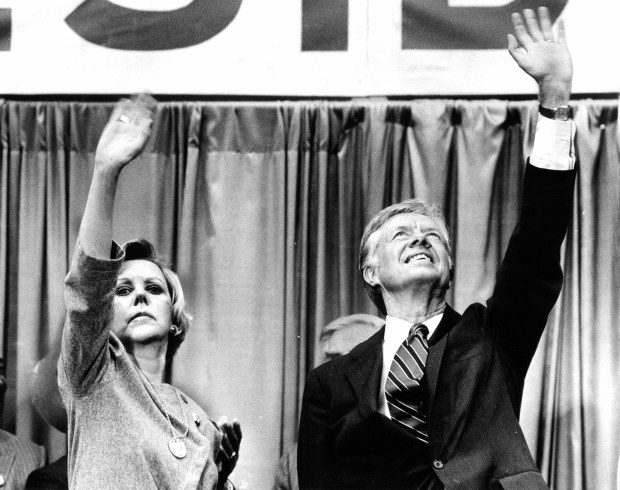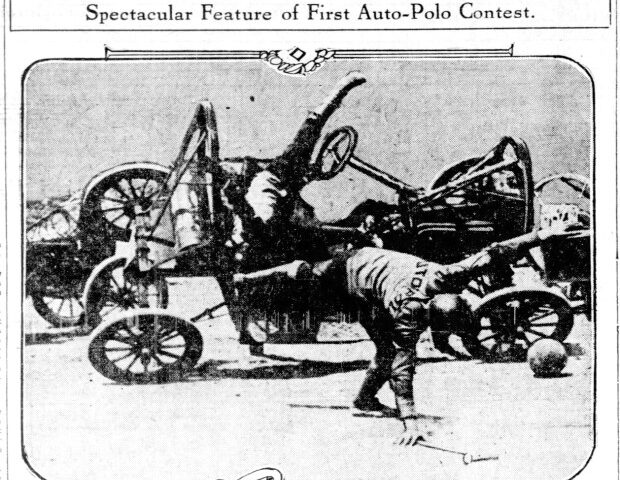Lake County Democratic Party Chairman Jim Wieser was at a conference in Washington D.C. in 1977 for local elected officials to learn about federal resources for economic redevelopment, which included watching an informational movie in the White House movie theater.
But the memorable moment, Wieser said, was when the film ended.
“The lights came on, and standing in front of us was Jimmy Carter. He said, ‘Congressman (Adam) Benjamin said you were all here, I wanted to welcome you,’ and gave a nice speech,” Wieser said.
Carter spent time talking to those who were interested, which was basically everyone in the room that day, Wieser said.
For about three minutes, Wieser said he had the ear of the president, where he thanked him for his service and told him that Northwest Indiana was in need of economic redevelopment because of challenges the steel industry was facing at the time. Carter told him, Wieser said, that he was aware of the challenges and that he was working to address them.
“I was just blown away by how it all happened. There was no introduction of him. There was no forewarning that we would be in the presence of the president. The lights came on and there he was,” Wieser said.
Jimmy Carter, a Georgia peanut farmer who won the presidency following the Watergate scandal and Vietnam War, died Sunday, roughly 22 months after entering hospice care, at his home in Plains, Georgia. He was 100 years old.
Carter, who endured humbling defeat after one tumultuous term, will be remembered for his humanitarian efforts, said Indiana University professor emeritus of political science Marjorie Hershey and local officials.
“What most people will remember was his humanitarian activity since he left the White House. I think there’s a lot to remember about his time as president as well. It’s easy to underestimate one-term presidents, Carter’s certainly was up and down as most presidents are, but he did accomplish a lot,” Hershey said.
Carter was the longest-living president in American history and became the first former commander-in-chief to reach the century mark. Carter and his wife, Rosalynn, who died at 96 in November 2023, were married for 77 years and had four children.
Carter, a Navy officer, won a Georgia Senate seat in 1962, and four years later ran for governor but lost to Lester Maddox. In 1970, Carter ran for governor again and won. In 1974, he ran the Democrats’ national campaign arm before declaring his own candidacy for president in 1976.
The 39th president leveraged his ambition with a keen intellect, deep religious faith and prodigious work ethic, conducting diplomatic missions into his 80s and building houses for the poor well into his 90s.
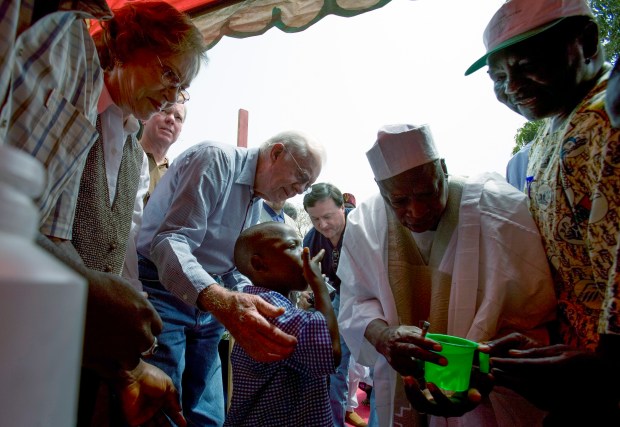
“My faith demands – this is not optional – my faith demands that I do whatever I can, wherever I am, whenever I can, for as long as I can, with whatever I have to try to make a difference,” Carter once said.
The Jimmy and Rosalynn Carter Work Project reached its 35th build in August 2018 as the couple worked alongside volunteers and future homeowners to build or improve 41 homes in Mishawaka and South Bend.
Hershey said the couple’s work with Habitat for Humanity drew attention to homelessness and the “responsibility of people of conscience to try to make problems better instead of just using them to draw public attention and votes.”
“I wish that all presidents would act the way Carter did once he left office but while they are in office,” Hershey said.
A moderate Democrat, Carter entered the 1976 presidential race as a little-known Georgia governor with a broad smile, outspoken Baptist mores and technocratic plans reflecting his education as an engineer. His promise not to deceive the American people resonated after Richard Nixon’s disgrace and U.S. defeat in southwest Asia.
Carter governed amid Cold War pressures, turbulent oil markets and social upheaval over racism, women’s rights and America’s global role. His most acclaimed achievement in office was a Mideast peace deal that he brokered by keeping Egyptian President Anwar Sadat and Israeli Prime Minister Menachem Begin at the bargaining table for 13 days in 1978. That Camp David experience inspired the post-presidential center where Carter would establish so much of his legacy.
Yet Carter’s electoral coalition splintered under double-digit inflation, gasoline lines and the 444-day hostage crisis in Iran. His bleakest hour came when eight Americans died in a failed hostage rescue in April 1980, helping to ensure his landslide defeat to Republican Ronald Reagan.
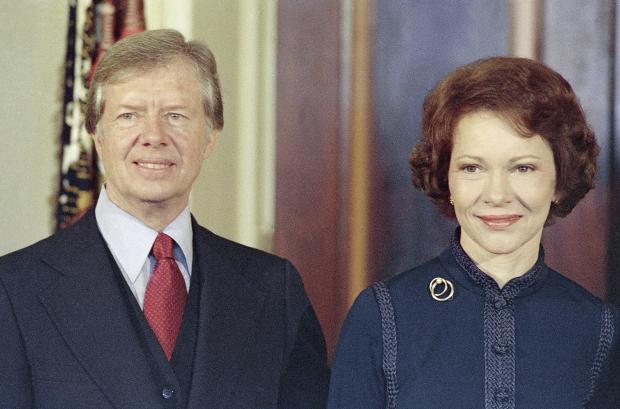
During his tenure, Carter partially deregulated the airline, railroad and trucking industries and established the departments of Education and Energy, and the Federal Emergency Management Agency. He designated millions of acres of Alaska as national parks or wildlife refuges. He appointed a then-record number of women and people of color to federal posts.
Hershey attributed Carter’s reelection loss to the fact that he had the qualities of a humanitarian, which aren’t the same qualities needed to run for political office.
“What was especially impressive about Jimmy Carter is that he put into action his religious faith in a way that was inclusive. He didn’t try to rule some people out because of their beliefs. He ruled a lot of people in,” Hershey said. “He did just an amazing job, I think, of showing what the gospels look like in everyday life. That’s something a lot of us could learn from right now.”
Carter acknowledged in his 2020 “White House Diary” that he could be “micromanaging” and “excessively autocratic,” complicating dealings with Congress and the federal bureaucracy. He also turned a cold shoulder to Washington’s news media and lobbyists, not fully appreciating their influence on his political fortunes.
“Carter did in fact accomplish quite a bit as president, not easily. He didn’t get along with Congress very effectively. When that happens, there’s typically a backlash,” Hershey said. “Voters very often know what they don’t like a lot better than what they like, so it’s very common for any president who gets a number of things done to see a reaction against that effort.”
The Carters founded The Carter Center in 1982 as a first-of-its-kind base of operations, asserting themselves as international peacemakers and champions of democracy, public health and human rights.
He went “where others are not treading,” he said, to places like Ethiopia, Liberia and North Korea, where he secured the release of an American who had wandered across the border in 2010.
He announced an arms-reduction-for-aid deal with North Korea without clearing the details with Bill Clinton’s White House. He openly criticized President George W. Bush for the 2003 invasion of Iraq. He also criticized America’s approach to Israel with his 2006 book “Palestine: Peace Not Apartheid.”
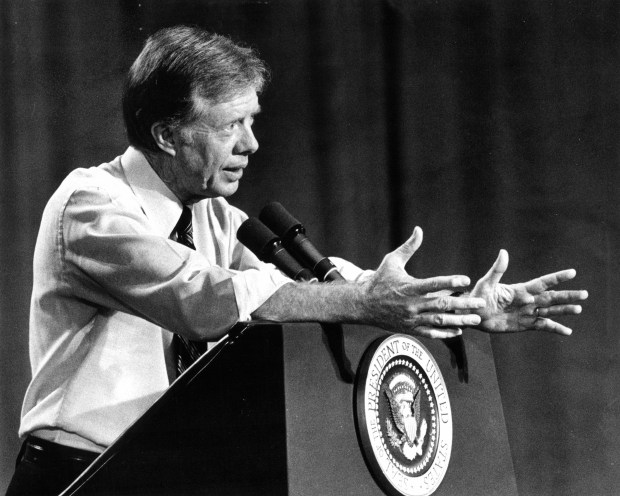
“I can say what I like. I can meet whom I want. I can take on projects that please me and reject the ones that don’t,” Carter said.
The Nobel Committee’s 2002 Peace Prize cites his “untiring effort to find peaceful solutions to international conflicts, to advance democracy and human rights, and to promote economic and social development.” Carter should have won it alongside Sadat and Begin in 1978, the chairman added.
State Rep. Vernon Smith, D-Gary, said Carter was one of his favorite presidents because he was a genuine person. All Americans, regardless of political party, respected him, Smith said.
“He was sincere. He loved the people of the United States. He served them and not himself,” Smith said.
Wieser said Carter will be remembered as a caring, compassionate, honest man who could reach across the aisle.
“He just wanted to do what was in the best interest of the American people,” Wieser said. “What is reflected over decades was what an honorable, decent man he was.”
The Associated Press contributed.
akukulka@post-trib.com


